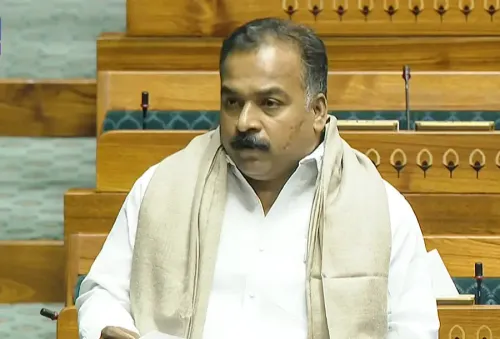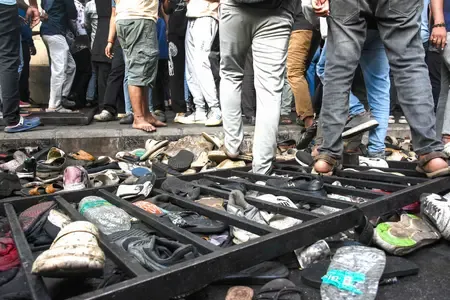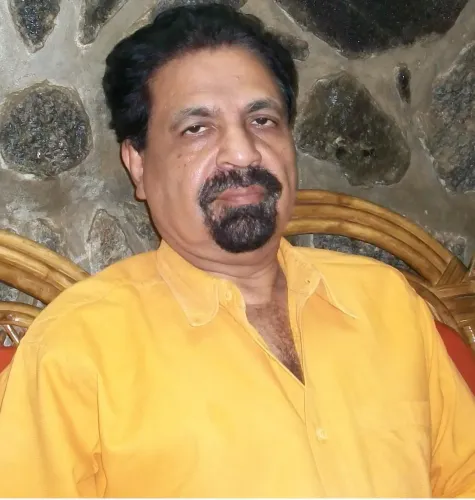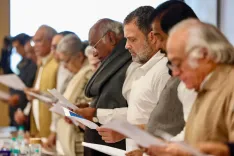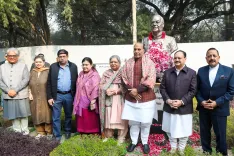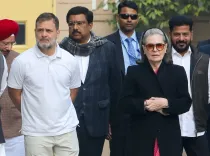What Discussions Did the Tipra Motha Party Have with JP Nadda Regarding SIR?
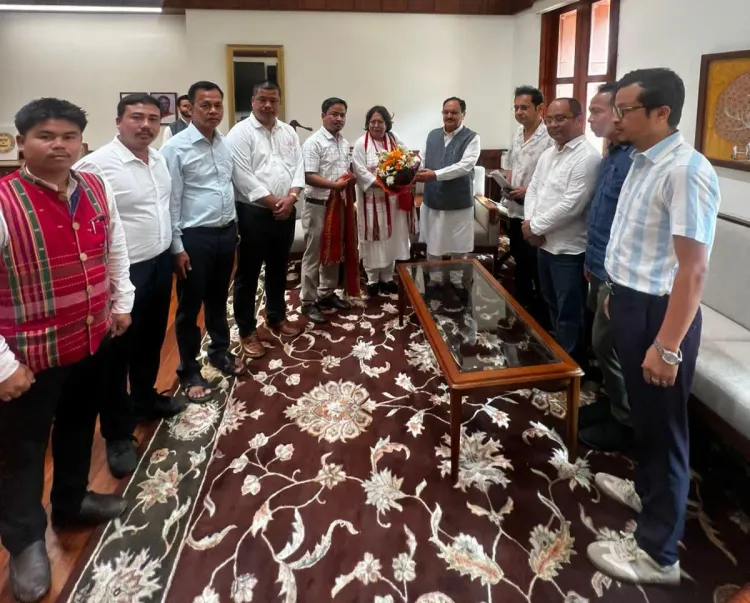
Synopsis
Key Takeaways
- Tipra Motha Party emphasized the need for Special Intensive Revision of electoral rolls.
- Meeting with J.P. Nadda addressed national security concerns.
- Implementation of the tripartite accord was a key topic.
- Illegal migration impacts the electoral landscape in Tripura.
- ECI assured SIR will be conducted across the country.
New Delhi/Agartala, July 24 (NationPress) A delegation from the Tipra Motha Party (TMP), a minor partner of the ruling BJP, met with BJP President J.P. Nadda in the national capital on Thursday to emphasize the critical need for implementing the Special Intensive Revision (SIR) of the electoral rolls in Tripura, as reported by party sources.
A spokesperson for TMP in Agartala indicated that the nine-member team, headed by party leader Pradyot Bikram Manikya Debbarma, also addressed the implementation of the tripartite accord signed on March 2 of the previous year during their discussions with Nadda, who also serves as the Union Health and Family Welfare Minister.
The spokesperson noted that discussions included concerns related to national security, especially given the current situation in Bangladesh and the treatment of minorities there.
Among those present at the meeting were TMP leaders along with two state ministers—Animesh Debbarma and Brishaketu Debbarma—and Kriti Devi Debbarman, the Lok Sabha member from the Tripura East constituency.
“The Union government had previously guaranteed the implementation of the tripartite accord before the last Lok Sabha elections to benefit the indigenous population of Tripura,” stated the TMP spokesperson.
Additionally, party head Pradyot Bikram Manikya Debbarma announced that the Election Commission of India (ECI) informed a TMP delegation that the SIR for electoral rolls would be carried out nationwide, including in Tripura.
The TMP delegation, led by Debbarma, had a meeting with the full ECI, which was headed by Chief Election Commissioner Gyanesh Kumar, to request that SIR be implemented in Tripura similar to the approach taken in Bihar.
After the meeting, Debbarma, who comes from a royal lineage, told reporters in New Delhi that one of the main points discussed was the urgent need for SIR in Tripura, and the Commission assured that it would take place across the country, including in Tripura.
“Illegal migration is impacting our state and the northeast; if we fail to identify illegal voters today, our future generations face dire consequences. The encouraging news is that the ECI has assured our delegation that SIR will be conducted nationwide, including in Tripura,” declared TMP’s chief.
The TMP has sent a letter to the ECI, insisting on conducting the SIR of the electoral rolls in Tripura, along with a thorough door-to-door verification process akin to the model recently adopted in Bihar.
Following extensive negotiations and the signing of a tripartite agreement with the Centre and the Tripura government on March 2 last year, the then-opposition TMP, which had 13 MLAs, joined the BJP-led coalition government on March 7, adding a new dimension to Tripura's political landscape.
On that same day, two TMP MLAs—Animesh Debbarma and Brishaketu Debbarma—were integrated into the cabinet led by Chief Minister Manik Saha. The TMP’s demands encompass enhanced autonomy for the Tripura Tribal Areas Autonomous District Council (TTAADC) and advancements in the socio-economic conditions of tribal communities.


